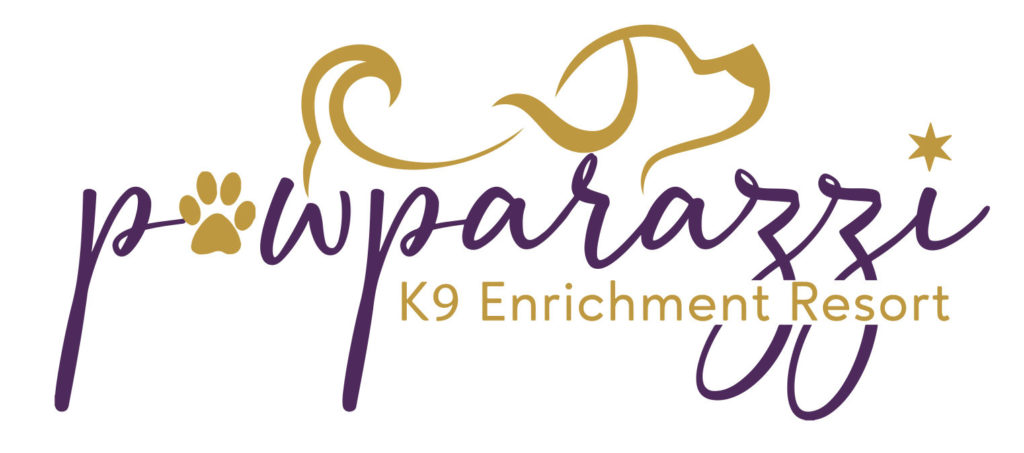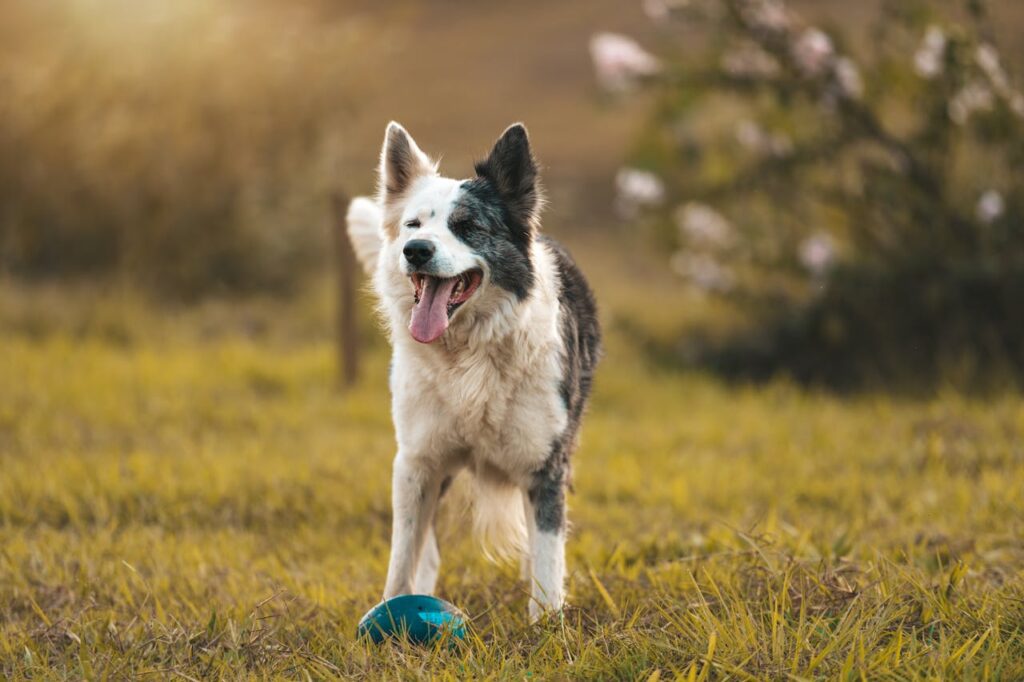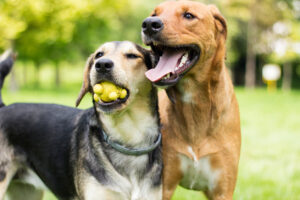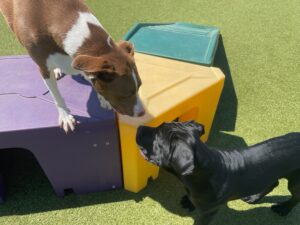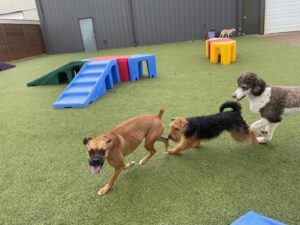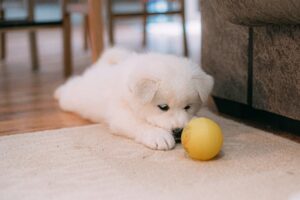Ever considered that playtime could actually be the most productive moment of your dog’s day? These brain-boosting games are not only fun but also crucial in keeping our furry friends mentally agile. Engaging a dog’s mind enhances cognitive abilities, and strategic games can introduce new learning opportunities.
The roots of canine game development trace back to the need for intellectual stimulation in working dogs. Today, engaging games like treasure hunts, puzzle feeders, and hide-and-seek sharpen mental acuity for modern pets. Studies show that dogs engaged in regular mental exercises live longer, healthier lives, making these games pivotal for overall well-being.
- Hide and Seek: Encourages problem-solving and enhances a dog’s natural instincts.
- Puzzle Feeders: Stimulates mental agility during mealtime through problem-solving.
- Tug of War: Builds strength and focus while promoting safe play.
- Treasure Hunt: Engages the sense of smell and sharpens tracking abilities.
- Obstacle Course: Enhances physical coordination and cognitive skills with diverse challenges.
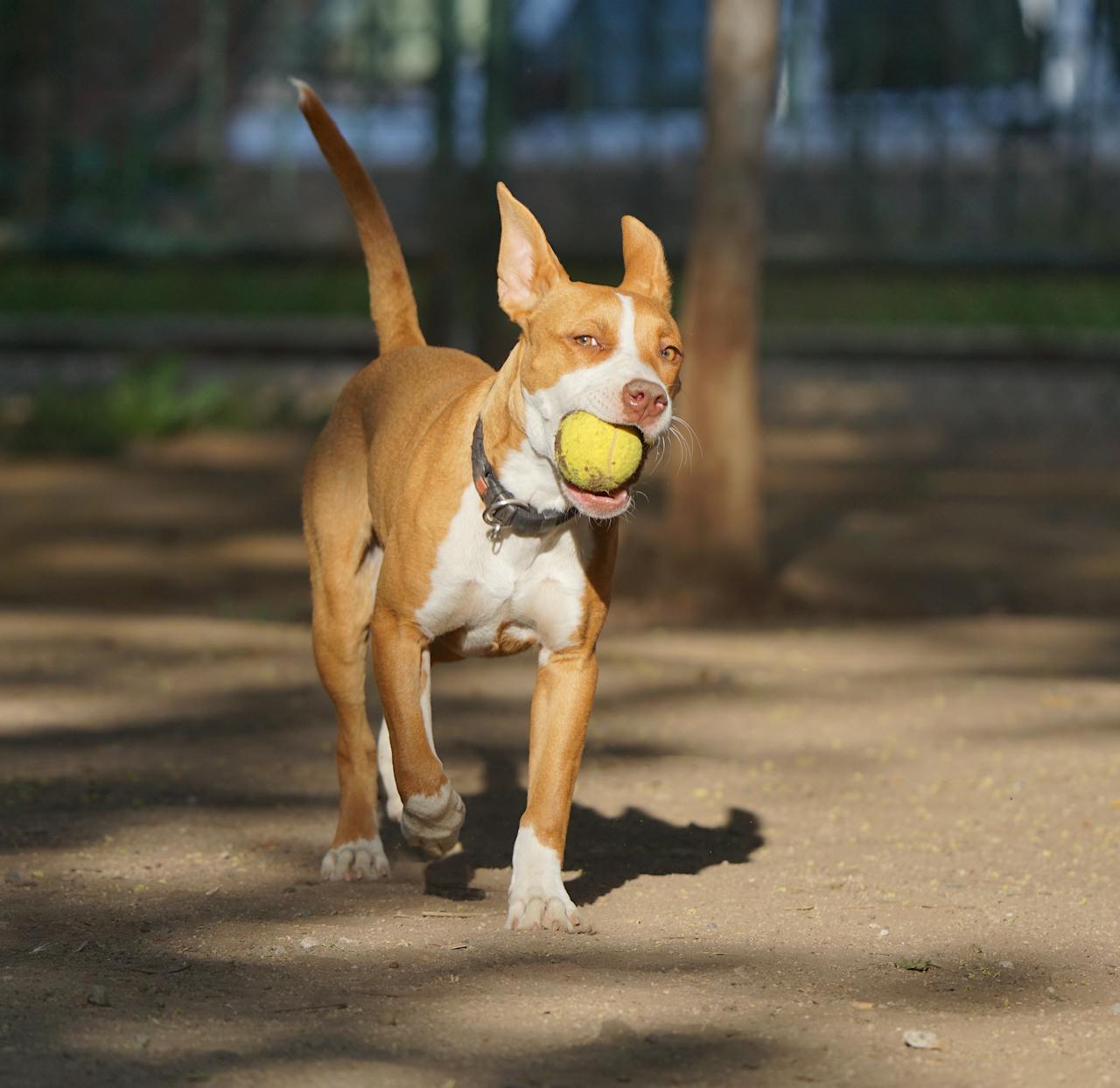
5 Brain-Boosting Games Your Dog Will Love
Engaging your dog’s mind is both fun and beneficial. Hide and seek, a game most of us know, can also excite your dog. It involves hide-and-go-find with treats or people, sparking your dog’s senses. This game not only entertains but also challenges your dog’s problem-solving skills. It’s a simple activity that results in a happy, tired pet.
Another exciting option is the treasure hunt. By hiding treats around the house or yard, you’re encouraging your dog to use its sense of smell to find them. This boosts mental engagement and adds some exercise. Dogs are natural scavengers, and this game takes advantage of that instinct. A treasure hunt is a rewarding activity for both you and your furry friend.
Puzzle feeders are perfect for mealtime if you want to add a brain twist. These feeders make dogs think a bit harder to get their food. They are excellent for slowing down fast eaters and preventing boredom. Plus, they introduce an element of challenge. Many different designs and difficulty levels are available to match your dog’s ability.
Building a simple obstacle course in your backyard can also be great fun. It’s a fantastic way for dogs to learn new skills and commands. Start with simple jumps or tunnels, increasing the complexity as your dog gets the hang of it. This game keeps your dog physically active while also honing its focus. An obstacle course offers both a workout and a mental boost.
Hide and Seek
Hide and seek is a fantastic game to play with your dog. This classic activity is more than just fun; it enhances your pet’s mental fitness. You can start by hiding in simple places and calling your dog’s name. As your dog gets better, make the hiding spots trickier. This will challenge your dog’s problem-solving skills.
Incorporating treats can make the game more exciting for your furry friend. Hide some tasty snacks in the hiding spots, or even on yourself. When they find you or the treats, it’s a rewarding experience for your pet. This motivates them to use their sense of smell more actively. Dogs love it, and it keeps them engaged.
A key benefit is that it strengthens your dog’s listening abilities. By listening to your calls, they improve their responsiveness. This activity can help reinforce training commands. The game becomes an opportunity to practice staying focused despite distractions. It’s like a workout for both mind and obedience.
When your dog is fully engaged, it’s also a physical workout. Running around searching uses lots of energy. To ensure safety, check your environment for hazards before beginning. Always be mindful of where your dog might roam. Hide and seek is a wonderful way to build trust and bond with your dog.
Treasure Hunt
Treasure Hunt for dogs is an engaging game that combines fun with mental exercise. This activity taps into your dog’s natural instincts to search and sniff. By hiding treats around the house or garden, you create an exciting environment for your dog to explore. It encourages them to use their powerful sense of smell. Dogs love the challenge and reward this game provides.
To start, you can choose a few of your dog’s favorite treats. Hide them in various spots within a designated area. Consider using places that vary in difficulty to find. This keeps the game interesting and can increase its level of challenge over time. The joy and satisfaction on your dog’s face when discovering the hidden rewards are priceless.
This activity requires your dog to think, increasing their cognitive abilities. As they search for hidden treasures, they also get a significant mental workout. The game is also a great way to train patience and focus. It encourages your dog to stay attentive and follow cues. It’s an enriching experience that keeps boredom at bay.
Always ensure the safety of your treasure hunt area. Remove any hazards that could cause harm to your dog. Make sure the treats used are safe and appropriate for your pet. Keep the activity fun and rewarding. Treasure hunts can create unforgettable bonding moments with your dog.
Puzzle Feeders
Puzzle feeders are an innovative way to engage your dog’s mind while feeding them. These feeders require your pet to solve a puzzle to access their food. This not only makes mealtime more exciting but also helps slow down fast eaters. Slowing down the eating process can aid in digestion and prevent gulping. It’s a perfect blend of fun and function.
There are many types of puzzle feeders to choose from. They come in different designs, sizes, and difficulty levels. Some popular styles include balls, mazes, and sliders. This variety ensures that even the most playful or curious dogs are entertained. As your dog masters one feeder, you can introduce a new challenge to keep things fresh.
The process of figuring out how to get their food from the feeder is mentally stimulating for dogs. It encourages them to use their problem-solving skills and keeps them occupied. Using puzzle feeders can reduce boredom and alleviate destructive behaviors. Dogs often resort to chewing furniture or shoes when they aren’t mentally stimulated. Puzzle feeders offer a constructive solution.
When introducing a puzzle feeder, start with an easier model. This allows your dog to get used to the concept without frustration. Gradually, as your pet becomes more adept, transition to more complex feeders. Observing their progress can be both entertaining and rewarding. You’ll notice not only their growing sense of accomplishment but also their eagerness to use their brain.
Using puzzle feeders as a regular part of your dog’s routine can greatly enhance their quality of life. It’s an enriching experience that combines nourishment with mental exercise. These feeders are ideal tools for keeping your dog both happy and healthy. Plus, it provides an excellent opportunity for bonding with your pet. Watching them solve the puzzle is sure to bring a smile to your face.
Tug of War
Tug of war is a classic game that dogs absolutely love. This playful test of strength helps build a dog’s confidence and provides physical exercise. It’s an excellent way to bond with your pet while burning off some of their excess energy. All you need is a sturdy rope or toy designed for tugging. Always ensure the toy is safe and doesn’t have any sharp or small parts.
Playing tug of war also offers mental benefits. Dogs learn self-control, especially when you incorporate commands like “drop it” or “take it.” These commands teach your dog when to start and stop, enhancing their obedience. It’s crucial to maintain fairness, ensuring the game stays fun and non-dominant. Your pet should always feel encouraged and not overwhelmed.
Establishing rules for tug of war will make the game safer for everyone involved. Begin with a command that signals the start of the game. For example:
- Start play when the dog sits calmly.
- Stop immediately if teeth make contact with your skin.
- Alternate control of the toy between you and the dog.
- End the game if your dog becomes overly excited or aggressive.
Letting your dog win occasionally is also part of the fun. Winning boosts their confidence and keeps them eager to play. However, make sure to control the game, using breaks to instill positive behavior. Reward your dog with praise or a treat when they follow commands. This way, the game remains a positive learning experience.
Playing tug of war regularly can be part of a balanced exercise routine for your dog. It’s easy to fit into daily activities, even with limited space. Given the right approach, it’s a wonderful mixture of fun, agility, and learning. A simple game of tug can strengthen the bond with your dog while providing both mental and physical benefits.
Obstacle Course
Creating an obstacle course is a fun way to challenge your dog’s agility and intelligence. These courses can be set up in your backyard using everyday objects like pillows or chairs. It’s a great exercise for dogs, providing both mental and physical stimulation. As your dog navigates the course, it learns to overcome various challenges. This boosts their confidence and improves coordination.
To get started, introduce simple obstacles, such as jumping over a broomstick or weaving through cones. As your dog gets more skilled, you can add complexity by increasing the number and difficulty of the obstacles. Always demonstrate how to navigate a new challenge. Encourage your dog with treats or praise. This keeps them motivated and ensures they feel successful with each new triumph.
An obstacle course can include:
- Tunnels made from large boxes or blankets.
- Ramps or slopes using wooden boards.
- Weave poles created from sticks in the ground.
- Hurdles made from low stools or ropes.
Safety should always be your top priority when setting up an obstacle course. Ensure all equipment is stable and free from sharp edges that could harm your pet. It’s important to supervise and guide your dog throughout to prevent any accidents. Keep the environment positive and stress-free. If your dog shows signs of fatigue, give them rest and water breaks.
Obstacle courses are a versatile way to engage with your dog. They can be adapted to suit different spaces and skill levels. You can change the setup regularly to keep things exciting for your dog. This form of play promotes a healthy lifestyle while strengthening the bond between you and your furry friend. It’s an experience full of learning, fun, and shared joy.
The Importance of Brain-Boosting Games for Dogs
Brain-boosting games are essential for dogs, helping to keep their minds sharp and active. These games stimulate a dog’s cognitive functions, much like puzzles or brain teasers do for humans. Engaging in such activities can prevent boredom and reduce anxiety-related behaviors, which might include chewing on furniture or persistent barking. Plus, they’re an excellent way to strengthen the bond between you and your pet. These interactive sessions promote happiness and well-being.
Regular mental stimulation can contribute significantly to a dog’s overall health. Mental activities can tire out a dog just as much as physical exercise does. This is particularly helpful for dogs that need an outlet for their excess energy but cannot engage in long physical activities due to size, age, or health constraints. Incorporating brain-boosting games into their routines can lead to calmer behavior at home. This balance is vital for happy pets.
Diverse games provide varied benefits tailored to individual needs:
- Puzzle feeders encourage problem-solving during mealtimes.
- Obstacle courses build agility and quick thinking.
- Tug of war strengthens focus and impulse control.
One might overlook the importance of these brain workouts, yet they play a critical role in prolonging a dog’s life quality. The enriched experiences promote longevity by keeping them mentally fit. Much like people benefit from lifelong learning, dogs thrive on continuous mental challenges too. Engaging with different games ensures they don’t settle into monotonous routines, maintaining an active interest in their surroundings.
A regular schedule including brain-stimulating activities creates positive habits for both owners and pets alike. Whether through simple homemade challenges or specially designed toys bought from pet stores, there’s something available for every dog regardless of breed or age. Adapting these practices helps maximize the life and joy shared with our beloved companions daily. Patience and consistency bring about tremendous rewards in your furry friend’s behavior and happiness.
Insights into Canine Intelligence
Canine intelligence is an intriguing subject that captivates many dog owners. Understanding how smart our furry friends are can make training and interaction more effective. Dogs possess different types of intelligence, including instinctive, adaptive, and working intelligence. These abilities help them learn, problem-solve, and perform tasks. Recognizing these types ensures we tailor activities to each dog’s strengths.
Instinctive intelligence refers to what dogs are bred to do, like herding or retrieving. Dogs excel in activities that align with their natural roles. Incorporating games that play to these instincts can lead to successful outcomes. Adaptive intelligence shows how well dogs learn from their environment. It’s what allows them to tackle new challenges presented through engaging games.
| Type of Intelligence | Description |
|---|---|
| Instinctive | Natural abilities for essential tasks |
| Adaptive | Problem-solving based on experiences |
| Working | Learning commands and performing tasks |
Working intelligence involves understanding and responding to commands. It’s particularly useful in training sessions, allowing dogs to learn and obey quickly. Games like Tug of War or Hide and Seek can enhance this ability. They teach dogs to listen to cues, thereby improving their obedience. Such activities transform learning into a fun and rewarding process.
Exploring canine intelligence through brain-boosting games helps dogs remain mentally agile and reduces behavioral issues. Dogs engaged in regular mental and physical exercises tend to be happier and healthier. With insights into how they think, we can deepen our connection with them. It’s a journey of discovery that not only benefits the dog but enriches our companionship. These insights pave the way to more fulfilling interactions.
How to Maintain Your Dog’s Cognitive Health
Keeping your dog’s brain sharp is vital for their overall well-being. Regular mental stimulation ensures that they stay engaged and alert. Engaging your pet with brain-boosting activities, such as puzzle feeders and obstacle courses, plays a huge role in maintaining their cognitive health. These games can prevent the onset of cognitive decline in older dogs. Consistently challenging their mind promotes lifelong learning and adaptation.
A balanced diet rich in nutrients is essential for your dog’s brain health. Foods containing omega-3 fatty acids, antioxidants, and vitamins can enhance cognitive function. Check with your veterinarian for dietary recommendations tailored to your dog’s needs. Ensuring your dog gets plenty of water daily supports brain function too. Proper nutrition and hydration lay the groundwork for optimal mental performance.
Physical exercise complements mental activities by reducing stress and anxiety. Regular walks, playtime, and activities like tug of war offer a mix of fun and fitness. Exercise increases blood flow, which supports brain health and function. Be sure to adjust your dog’s exercise routine based on their age and health conditions. A variety of activities keeps your dog motivated and engaged.
- Provide mental challenges through games and puzzles.
- Incorporate a nutritious diet with essential supplements.
- Ensure regular physical exercise and outdoor time.
- Maintain consistent routines with new experiences.
Veterinary check-ups are another critical component of cognitive health. Regular visits can help detect early signs of cognitive dysfunction. Discuss any changes in your dog’s behavior with your vet to address concerns promptly. They might suggest supplements or additional activities to support cognitive health. Proactive care ensures your dog enjoys a fulfilling and healthy life.
Overall, maintaining your dog’s cognitive health involves a mixture of mental exercises, proper nutrition, physical activity, and regular vet visits. These steps will help ensure that your furry friend remains happy and mentally fit throughout their life. By proactively engaging in these practices, you’re enhancing their quality of life. Cherishing these moments strengthens your bond and shares joy with your beloved companion.
The Benefits of Regular Mental Exercise for Dogs
Engaging in regular mental exercise offers numerous benefits for dogs, similar to how puzzles benefit humans. Mental activities can improve a dog’s brain health, helping prevent issues related to stress and anxiety. When dogs focus on problem-solving, their ability to process information becomes more efficient. Activities like brain-boosting games offer stimulation that satisfies their natural curiosity and need for exploration. This reduces incidents of boredom-related behaviors, like destructive chewing.
Mental challenges are also instrumental in boosting obedience and training efficiency. Mental exercises teach dogs to listen, follow commands, and develop patience. They learn appropriate behavior through structured games like obedience training or hide and seek. The repetitive nature of these activities reinforces positive actions, making training faster and more effective. Such interactions are invaluable in creating a well-behaved pet.
These activities can also bolster dogs’ emotional well-being by enhancing their confidence. Conquering a tough puzzle or completing an obstacle course gives them a sense of achievement. This boosts morale, making them eager to face new challenges. Regularly achieving small victories provides a steady boost to confidence levels. Confident dogs are often happier and less prone to anxiety.
| Benefit | Description |
|---|---|
| Enhanced Cognitive Function | Improves mental processing ability |
| Improved Behavior | Reduces destructive tendencies |
| Faster Learning | Increases training efficiency |
| Boosted Confidence | Encourages tackling new challenges |
Personal interactions during mental exercise deepen the bond between a dog and its owner. Cooperation in completing tasks or solving puzzles strengthens mutual trust. Through these activities, dogs feel valued and loved, enriching companionship. The shared achievements foster a more connected relationship. Such bonds are essential for a fulfilling coexistence between pet and owner.
Overall, mental exercises should be a core aspect of a dog’s daily routine. Introducing a variety of challenges can transform even the most mundane days. Empowered dogs are keen observers, eager learners, and loyal companions. Regular mental stimulation offers a path to a healthier, more joyful pet life. These benefits highlight the importance of keeping a dog’s mind engaged alongside its body.
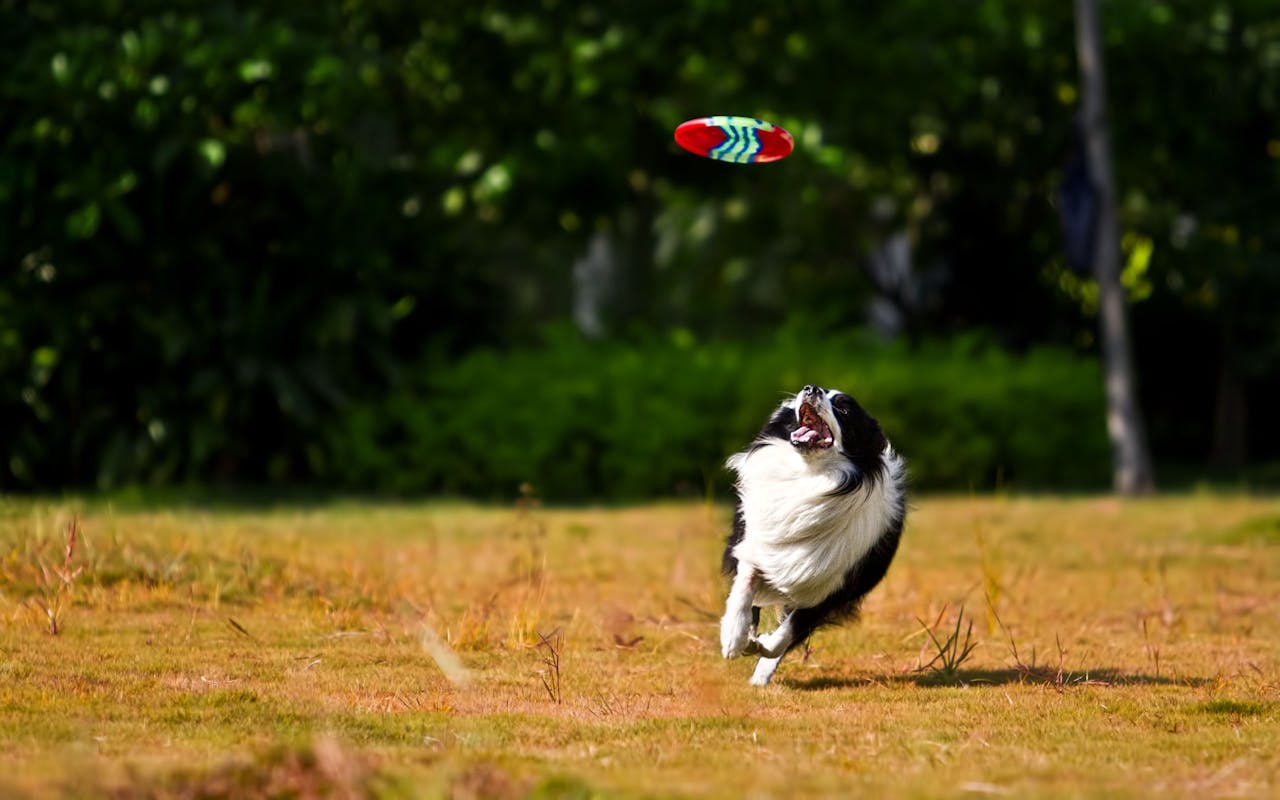
Frequently Asked Questions
Understanding the power of brain-boosting games can enhance your dog’s well-being. Here are answers to some common questions about this fun and engaging topic.
1. How do puzzle feeders benefit my dog?
Puzzle feeders engage your dog’s mind during mealtime, turning routine eating into an exciting challenge. They help slow down fast eaters, which can improve digestion and prevent bloating. By requiring your dog to work for their food, puzzle feeders provide mental stimulation that keeps them alert and attentive.
Moreover, these feeders can alleviate boredom and reduce anxiety by providing a constructive outlet for energy. As your dog figures out the puzzle, they’re engaging their problem-solving skills, enhancing cognitive functions. This daily mental workout is essential for a well-rounded pet lifestyle.
2. What is the role of tug of war in cognitive development?
Tug of war is not just a physical game but also a mental exercise that strengthens impulse control. When you play with your dog, it’s important to use commands like “drop it” to reinforce good behavior. This helps your dog understand when to engage and when to release, boosting obedience.
Additionally, the game fosters focus and determination, as your dog learns to follow your lead. The competitive nature of tug-of-war also builds confidence, especially when your dog wins. This assurance positively impacts their overall behavior and willingness to engage in new tasks.
3. Why are obstacle courses beneficial for dogs?
Obstacle courses challenge dogs physically and mentally, providing a comprehensive workout. Each obstacle teaches dogs how to navigate different challenges, improving their agility and coordination. By solving these physical puzzles, dogs enhance their cognitive skills and problem-solving abilities.
Regular use of obstacle courses prevents boredom and boosts learning through varied experiences. Dogs stay motivated and engaged, noticing improvements in their capabilities. This kind of multifaceted training is essential for maintaining long-term cognitive health and physical fitness.
4. How can a treasure hunt stimulate a dog’s brain?
A treasure hunt taps into a dog’s natural scent-tracking abilities, making it an effective mental exercise. By hiding treats in different spots, you’re encouraging your dog to rely on its sense of smell. This activity calls for sharp focus and keen observation, honing these innate skills.
Besides enhancing scent work, this game provides excitement and joy, reducing stress levels. It transforms basic play into an adventurous experience that is enriching and rewarding. Over time, treasure hunts can significantly contribute to a dog’s cognitive and emotional health.
5. Are brain-boosting games essential for all dog breeds?
Yes, brain-boosting games benefit dogs of all sizes and breeds, though the type and intensity might vary. Every dog has the capacity to learn and enjoy activities that challenge its mind. These games help prevent boredom and anxiety by keeping them occupied creatively.
While some breeds may excel in certain types of activities, every dog’s intelligence and well-being can benefit from regular mental stimulation. Tailoring the games to your dog’s abilities ensures a balanced approach that is both enjoyable and beneficial. In essence, these activities are key for cognitive development and behavioral health across the canine spectrum.
Conclusion
The importance of brain-boosting games for dogs cannot be overstated. These activities are essential for maintaining cognitive health and enhancing the bond between dog and owner. Engaging a dog’s mind through games like puzzle feeders and obstacle courses promotes mental agility. Such stimulation results in happier and healthier pets.
As professionals in pet care, it’s crucial to incorporate mental exercises into daily routines. This approach not only enriches a dog’s life but also provides valuable insights into canine intelligence. By committing to these activities, we can ensure our beloved dogs lead fulfilling lives brimming with learning and joy. It’s an investment in their well-being and our lasting companionship.
"*" indicates required fields
